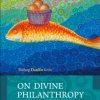She is active in National Association for Slavic Studies, the American Comparative Literature Association, and the Association for Slavic, East European, and Eurasian Studies. Ongoing projects include a book manuscript on sacrifice, the body, and the nation. Teaching interests in Comparative Literature include undergraduate courses on twentieth-century culture and history, women and myth, and graduate seminars on nationalism, and poststructuralist theory.
Languages:
- Serbo-Croatian (Bosnian, Croatian, Serbian, native), working knowledge of French, Italian, Latin, Modern Greek.
Affiliation(s):
- Comparative Literature, CREES, Slavic Languages & Literatures
Fields of Study:
- Literary Theory
- Postmodern Fiction
- Contemporary Balkan literature, with an emphasis on Serbian and Modern Greek fiction
- Balkan Film
- Myth, History, and Memory
- Nationalism
- Postcolonialism
- Exile
- Issues of Identity
- Gender Issues
- Music
Select Publications:
- Mythistory and Narratives of the Nation in the Balkans, ed. Tatjana Aleksic (Cambridge Scholars Publishing, 2007)
- “Making Patriarchal History Women’s Own: Eugenia Fakinou’s The Seventh Garment.” Forthcoming in Sanja Bahun-Radunovic and Julie Rajan, eds., Myth and Violence in Contemporary Female Text: New Cassandras, Surrey, UK: Ashgate, 2010.
- “Southeast European Novel,” Blackwell Encyclopedia of the Novel, ed. Peter Logan, 2010.
- “National Definition through Postmodern Fragmentation: Milorad Pavic's Dictionary of the Khazars,” Slavic and East European Journal (SEEJ) 53:1 (Spring 2009): 86-104.
- “The Emerging Subject of Rhea Galanaki’s Ismail Ferik Pasha,” Journal of Modern Greek Studies 27:1 (May 2009): 31-54.
- “Grief Can only Be Written in One’s Mother Tongue.” Literature of Exile, ed. Agnieszka Gutty (New York, Berlin: Peter Lang Publishing, 2009) 155-175.
- “Disintegrating Narratives and Nostalgia in Post-Yugoslav Postmodern Fiction.” Balkan Literatures in the Era of Nationalism, Murat Belge, Jale Parla, eds. Istanbul, Turkey: Bilgi University Press, 2009, 3-14.
- “Extricating the Self from History: Bait by David Albahari.” MMLA Journal 39:2 (Fall 2006): 54-70.
- Review of Lorraine Mortimer, Terror and Joy: The Films of Dušan Makavejev in The Slavic Review (Summer, 2010).
- Review of Danilo Kiš, Mansarda, tr. John Cox in World Literature Today (March/April 2009): 68-9.
- Review of Dubravka Ugrešic, Lend Me Your Character, tr. Celia Hawkesworth and Michael Henry Heim in Balkanistica 20, (Spring 2007): 185-187.
Education:
- 2002 MA in English Literature and Theory, University Of Nis, Serbia
- 2007 Ph.D. in Comparative Literature, Rutgers University
Book:
- (2013) The Sacrificed Body





